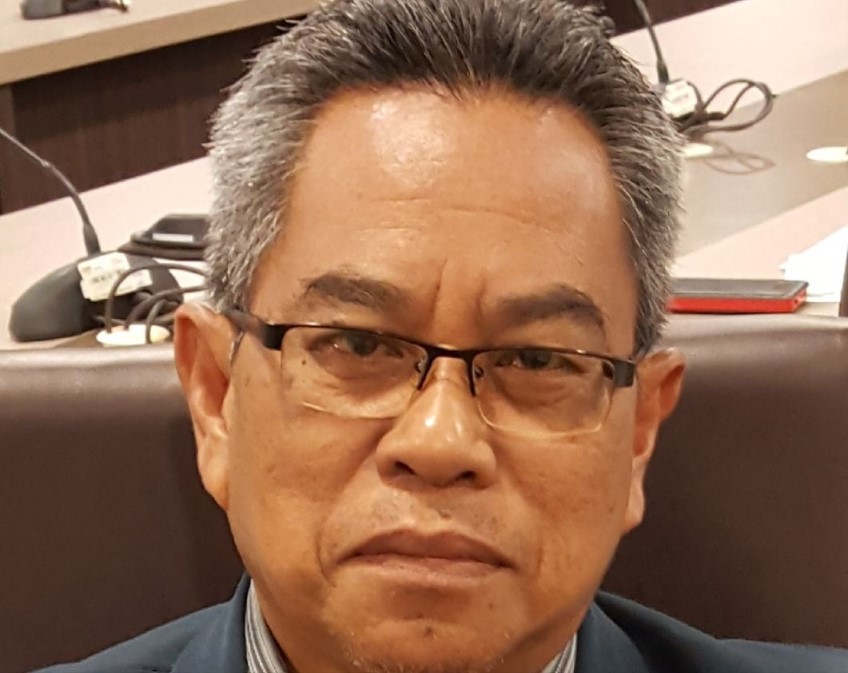KUALA LUMPUR, June 14 – Dr Zainal Ariffin Omar has called for the parallel pathway to comply with existing legislations, emerging as the first former Ministry of Health (MOH) official to publicly criticise the programme.
The former MOH disease control division deputy director’s rebuke of the alleged irregularity in the MOH’s parallel pathways with foreign royal colleges indicates dissent within the medical profession itself on this particular medical specialty training programme – instead of a simplistic conflict between specialist doctors in the MOH and those in universities who are also professors.
“Under the Medical Act 1971 [Act 50] (Amendment 2012), it is clear that training is required for NSR registration. And under the Malaysian Qualifications Agency (MQA) Act 2007 [Act 679], all local educational institutions must be accredited.
“For foreign institutions, approval must be granted by the respective country before it can be accepted by NSR/ MMC. All specialist training must be part of a system approved and accredited by MMC/ MQA, unless the Act is amended. Otherwise, much of the training will be unregulated,” said Dr Zainal Ariffin, who is also a former elected council member of the Malaysian Medical Council (MMC), told CodeBlue yesterday.
“Follow the existing Act 50 and MQA. Make corrections through recognised institutions and systems. There are already several other parallel pathway programmes in other medical disciplines besides the cardiothoracic surgery parallel pathway. The government must be fair and resolve this quickly.”
In response to senior consultant cardiothoracic surgeon Prof Dr Raja Amin Raja Mokhtar’s recent op-ed for CodeBlue, the former Pahang state health director even pointed out that concerns about patient safety issues and the quality of parallel pathway graduates were “one of the reasons why the MMC established the NSR system” (salah satu sebab kenapa MMC wujudkan sistem NSR).
Dr Zainal Ariffin joins medical professionals, Dr Raja Amin and paediatric surgeon Dr Dayang Anita Abdul Aziz, and Prof Dr Noor Hassim Ismail, head of the Group of Professors of Health and Medicine, who have raised “genuine concerns” about the competency of parallel pathway graduates and the potential impact on patient and public safety.
The New Straits Times previously quoted MQA chief executive Prof Mohammad Shatar Sabran stating that the agency is “not directly involved” in medical doctors obtaining specialist qualifications through the parallel pathway.
Mohammad Shatar said that the authority to approve or reject the registration and certification of medical practitioners rests with the MMC. MQA collaborates with MMC “only in the accreditation and recognition activities of medical institutions within the country.”
According to Section 14B of the Medical Act, individuals seeking specialist registration in the NSR must have completed specialised training in a “recognised training institution”, hold a recognised specialist qualification, and demonstrate their fitness and good character to the Council’s satisfaction.
Section 4A of the Medical Act outlines MMC’s powers, including the authority to “recognise and accredit medical qualifications based on the recommendation of the Joint Technical Committee established under the MQA Act 2007 (Act 679] for registration purposes.”
In a Facebook post yesterday, Dr Zainal Ariffin said he was “bewildered” (bingung) that the MOH excluded opponents of the parallel pathway and certain subject matter experts from its stakeholder engagement meeting on Wednesday regarding the Medical Act amendment bill.
“I have served as an elected member of MMC [and] a member of the MMC/ NSR Specialist Recognition Committee. I once served as Head of the Subspecialty Service in Non-Communicable Diseases (NCD) Epidemiology under the Public Health Medical Specialty gazetted by the MOH.
“For me, Act 50 (1971) and its 2012 Amendments, and even the Medical Regulations 2017, have been reviewed multiple times. I have also been involved in numerous discussions, including the Asia Pacific Higher Learning Sdn vs MMC case that went through the High Court, Court of Appeal, and Federal Court processes, resulting in substantial costs borne by the MMC. I have also been involved in the formulation of several Bills, Acts, and Regulations under MOH.
“The names mentioned [in CodeBlue’s article] are prominent figures with extensive experience in medical education, health care, and educational legislation in this country. They are ‘founders’ of several continuous education and learning initiatives.
“Therefore, unless there are compelling reasons, ‘transparent’ (telus) and ‘inclusive’ practices are highly anticipated from the health minister, who is believed to possess high integrity and intellectuality,” Dr Zainal Ariffin wrote.
CodeBlue reported yesterday that the MOH excluded opponents of the parallel pathway and key subject matter experts from its stakeholder engagement meeting on Wednesday regarding the Medical Act amendment bill.
Those excluded included former UKM vice chancellor Prof Emerita Dr Sharifah Hapsah – who developed the MQA Act – former MMC member Dr Abdul Razzak Mohd Said, and Dr Raja Amin, who serves on the Board of Studies for the cardiothoracic surgery postgraduate program in collaboration between Universiti Teknologi MARA (UiTM) and the National Heart Institute (IJN).
Dr Zainal Ariffin said he believes MOH’s policy should always be based on a “whole of government” and “multi-sectoral approach” engagement, “regardless of the biasness”.








